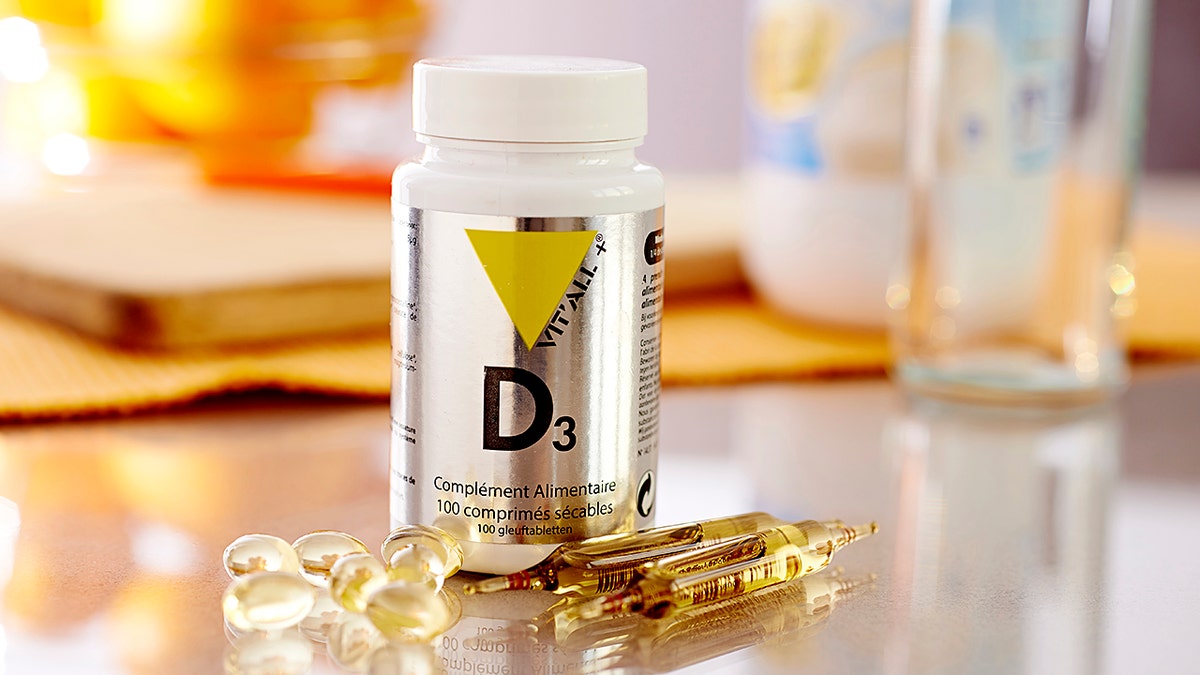New study shows drinking coffee daily can lead to living longer: Dr. Janette Nesheiwat
Fox News medical contributor Dr. Janette Nesheiwat provides analysis of a new study published by the Journal of Internal Medicine that says drinking coffee can lower your risk of contracting various deadly diseases on ‘Fox & Friends Weekend.’
With many Americans concerned about vitamin D deficiency, a new study finds a causal link between vitamin D deficiency and dementia, according to a paper published in The American Journal of Clinical Nutrition this April.
"Vitamin D is a hormone precursor that is increasingly [recognized] for widespread effects, including on brain health, but until now it has been very difficult to examine what would happen if we were able to prevent vitamin D deficiency," said lead author Elina Hyppönen, senior investigator and director of University of South Australia’s Australian Centre for Precision Health.
"Our study is the first to examine the effect of very low levels of vitamin D on the risks of dementia and stroke, using robust genetic analyses among a large population."

Vitamin D3 supplements (cholecalciferol). "Vitamin D is a hormone precursor that is increasingly [recognized] for widespread effects, including on brain health, but until now it has been very difficult to examine what would happen if we were able to prevent vitamin D deficiency," said lead author Elina Hyppönen, (Getty Images)
The genetic study, which was supported by Australia’s National Health and Medical Research Council, analyzed data from 294,514 participants from the UK Biobank to investigate the association between 25-hydroxyvitamin D and neuroimaging features with the risk of dementia and stroke.
RECTAL CANCER DRUG TRIAL OF DOSTARLIMAB CURES ALL PATIENTS : REPORT
Hyppönen told Fox News some people will always have slightly lower vitamin D status when compared to others with similar circumstances based simply on their genes.
So the study grouped the participants with higher or lower vitamin D levels based on their genes to examine the risk of developing dementia based on their vitamin D status.
"If there is a true effect of vitamin D on dementia risk, then this type of genetic analysis should also provide evidence for this and this is exactly what we saw."
Vitamin D is both a nutrient we get from certain foods and a hormone that our bodies make. It helps the body absorb calcium and phosphorus, which builds strong bones, according to Harvard T.H. Chan School of Public Health.

Vitamin D helps the body absorb calcium and phosphorus, which builds strong bones (iStock)
"Vitamin D production in the skin is the primary natural source of vitamin D, but many people have insufficient levels because they live in places where sunlight is limited in winter, or because they have limited sun exposure due to being inside much of the time," per Harvard’s website.
But it’s difficult to get enough vitamin D with the foods we eat, so the best way to ensure adequate levels is by taking a supplement, according to Harvard’s public health school.
The paper noted it’s the first study of its kind to show a direct link between dementia and lack of vitamin D.
The gold standard to prove causation is a randomized clinical trial, where participants are divided by chance into separate groups to compare treatment outcomes, according to the National Cancer Institute.
"We used a genetic design, as it would not be ethically acceptable to include people with clinical vitamin D deficiency to a randomized clinical trial where they would be left without a treatment that they need," Hyppönen told Fox News.
The study found low levels of vitamin D were associated with lower brain volumes and an increased risk of stroke.

Dementia prevention. Elderly woman hands doing jigsaw puzzle at home. It noted as much as 17 % of dementia cases could be prevented in some populations by increasing everyone to "normal" levels of vitamin D, which they described as 50 nmol/L. (iStock)
It noted as much as 17 % of dementia cases could be prevented in some populations by increasing everyone to "normal" levels of vitamin D, which they described as 50 nmol/L – the vitamin D insufficiency-cut-off point per the Institute of Medicine guideline.
"Furthermore, we were also able to look how this the type of genetic advantage where people would always have slightly higher vitamin D status than others in a similar situation, associates with dementia risk when concentrations are very low," Hyppönen explained to Fox News.
"The results from these analyses were particularly exciting, as we were able to show that effect that vitamin D has on dementia risk is much stronger and potentially restricted to those people whose concentrations are very low, suggesting that efforts to increase concentrations are only going to help if you are vitamin D deficient."
Dementia is a general term for impaired cognitive function that makes it more difficult to perform daily activities, according to the Centers for Disease Control and Prevention (CDC).
MISSING WISCONSIN MAN SUFFERING FROM DEMENTIA FOUND SAFE, POLICE SAY
The CDC estimates approximately 5 million adults over the age of 65 are living with dementia in the United States as of 2014, but there are more than 55 million people living with dementia globally, per the press release.
The study notes several limitations including residual confounding variables not accounted for, even though it did account for several variables that could influence the outcome.
The study also noted technical statistical limitations with regards how vitamin D was measured, and the findings may not be generalizable to a diverse population because the analyses used to test for causality were restricted to participants from White British ancestry.
CLICK HERE TO GET THE FOX NEWS APP
"If we’re able to change this reality through ensuring that none of us is severely vitamin D deficient, it would also have further benefits and we could change the health and wellbeing for thousands," Hyppönen said.
"Most of us are likely to be ok, but for anyone who for whatever reason may not receive enough vitamin D from the sun, modifications to diet may not be enough, and supplementation may well be needed."










































